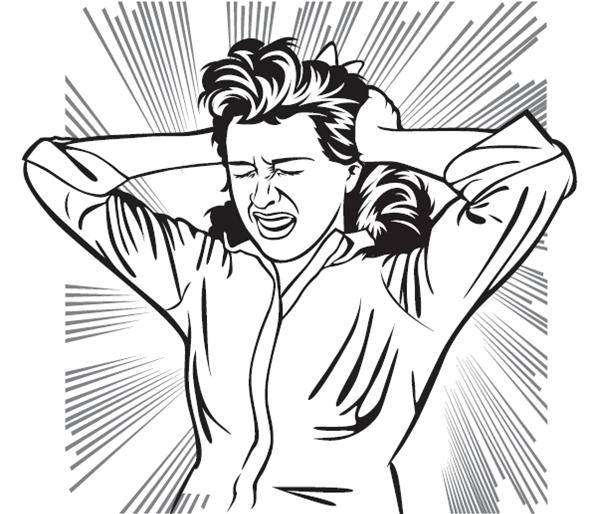You’re stressed. Your skin’s stressed. Your other half’s stressed. Everyone’s stressed. It’s no big deal, right? Wrong. Being stressed out has become a phrase that we’re so used to hearing that unless we’re throwing things around the room or pulling our hair out, we generally ignore it and the effects it has on our body. But what if we turn this negative into a positive? So put down your good friends Ben and Jerry and get that heart racing in a healthy way.
Q WHY IS STRESS BAD FOR ME?
A The human body is one of the greatest pieces of engineering and as a result it can cope and react to a great deal but it’s a fine line. “Stress can be positive; it keeps us alert and only really becomes negative when we face continuous and intense challenges without relief or relaxation, which is known as distress – a negative stress reaction,” says Dave Kyle, Head Trainer for Les Mills UK (lesmills.com). “Distress can lead to physical symptoms including headaches, upset stomach, elevated blood pressure, chest pain, and problems sleeping.”
Q IS THAT WHY I REACH FOR THE KITKAT?
A In short, yes. When we’re in a fight or flight situation, our bodies release the adrenaline hormone, which is what gives us the energy to make that deadline or run to that appointment. However, whilst this is going on, it’s also spiking the corticotrophin hormone (CRH) which decreases the appetite temporarily before cortisol sets in. “As its primary function is to replenish the body after the stress has passed, cortisol typically hangs around a lot longer and if it remains elevated it will increase your appetite and therefore encourage you to eat more and make bad food choices,” Dave tells us. Which explains those sweet wrappers under your desk; you know which ones!
Q WHAT CAN I DO?
A “We know that you know exercise is good for you,” Dave says. “Exercise in almost any form can relieve stress. Being physically active can boost your feel-good endorphins and offer some much needed distraction from daily worries.”
Q I M GOING TO NEED MORE CONVINCING…
A It pumps up and releases endorphins. “Physical activity helps to boost the production of your brain’s feel-good neurotransmitters, called endorphins aka feel good hormones.” It’s a great distraction. When your body is in a distressed state it can also impact your sleep patterns but all this can be eased with physical activity.”}






















